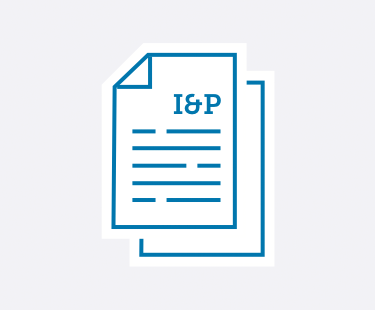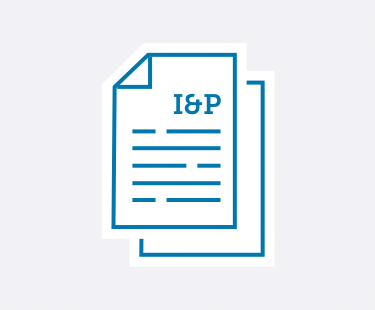

Learn practical strategies to handle emerging trends and leadership challenges in private schools.
No matter if you’re a School Head, Admission Director, Development Director, Board member, or any other private school administrator—Ideas & Perspectives®, ISM’s premier private school publication, has strategic solutions for the pervasive problems you face.
- Tuition not keeping pace with your expenses? In I&P, explore how to use strategic financial planning to create your budget and appropriately adjust your tuition.
- Enrollment dropping off? Discover how to implement the right admission and enrollment management strategies that engage your community—and fill your classrooms.
- Trouble retaining teachers? Learn how you can best support your teachers using ISM’s Comprehensive Faculty Development framework. Your faculty members will become more enthusiastic about their roles—which ultimately improves student outcomes.
- Fundraising campaigns not as successful as you’d hoped? Implement ISM’s practical advice and guidance to build a thriving annual fund, construct an effective capital campaign, and secure major donors—no matter your community size or location.
- Not sure how to provide professional development—for you and your staff? Learn ways to develop and fund a successful professional development strategy. You can improve teacher-centered satisfaction and growth, which in turn strengthens student-centered learning.
- Problematic schedule? You can master the challenges of scheduling with the help of ISM’s practical advice, based on our experience with hundreds of schools and our time-tested theories.
- And so much more.
I&P has shared targeted research, up-to-date insight, and sound theory with school leaders since 1975. More than 8,500 private school decision-makers find the answers to their schools’ administrative and governance matters in our advisory letter. We give you the strategic answers you need.
As an ISM Silver or Gold member, you not only receive issues online and in print 10 times a year, but you have access to 900+ articles in our web archive. Need help? It’s at your fingertips! Learn more and sign up for ISM's membership here.
Search
See the articles from our latest issue of Ideas & Perspectives.
Scheduling and Tracking
Volume 31 No. 12 // September 29, 2006
The matrix we call scheduling—that complex interrelationship among time, space, program, and people—is not just a mere description of what is happening in your school. It should also provoke the reflection necessary to understand how the elements of excellent education interact and enable the prime conditions for optimal learning.
1. Already a member? Click here to login.
2. Not a member? Click here to become a member.
3. Not sure? We'll help you figure it out.
Contents of a Board Handbook: A Checklist
Volume 31 No. 12 // September 29, 2006
As the Board Chair, you have been on the Board long enough to have often heard questions such as: “Don’t we have a policy on that?” “Didn’t the Development Committee consider that two years ago?” “What do the bylaws say?”
1. Already a member? Click here to login.
2. Not a member? Click here to become a member.
3. Not sure? We'll help you figure it out.
The Third Iteration of ISM Stability Markers: A Self-Scoring Process
Volume 31 No. 11 // September 4, 2006
The ISM’s Stability Markers® are those variables that are associated most strongly with a private-independent school’s ability to sustain excellence in its student programs. ISM has noted in the past that “there is a specific relationship between the ISM Stability Markers and the approach to planning that you, as Board President or School Head, should consider. To help you determine the planning ‘avenue’ that best suits your school’s current status (based on the Stability Markers), ISM has developed a selfscoring process.”
1. Already a member? Click here to login.
2. Not a member? Click here to become a member.
3. Not sure? We'll help you figure it out.
"Cool Roofing": The Benefits of Reflective Roofing Materials
Volume 31 No. 10 // August 14, 2006
Approximately $40 billion is spent each year in the United States to cool buildings, about one-sixth of all energy consumed. As air-conditioning costs rise, private-independent schools should look for every opportunity to conserve energy. One often-overlooked way to cut annual energy expenses may be right over your head.
1. Already a member? Click here to login.
2. Not a member? Click here to become a member.
3. Not sure? We'll help you figure it out.
The Third Iteration of ISM Stability Markers
Volume 31 No. 10 // August 14, 2006
At approximate five-year intervals, the ISM consulting staff conducts an internal study designed to identify those variables that are associated most strongly with a private-independent school’s ability to sustain excellence in its student programs. The outcome list, termed the ISM Stability Markers®, changes moderately from one iteration to the next, in part because North American economic and enrollment-demand conditions tend to shift over time, and in part because ISM’s capacity to measure—and, thus, to detect—prominent markers gains strength steadily with enhancements in the organization’s internal research capabilities. The second iteration, published in 2001, comprised two tiers, the first with eight items listed in rank order and the second with nine more items that were not prioritized. This new iteration also comprises two tiers, with six items in the top tier and 12 unranked items in the second.
1. Already a member? Click here to login.
2. Not a member? Click here to become a member.
3. Not sure? We'll help you figure it out.
The 2005 School Head Compensation Survey: Personal and Professional Benefits
Volume 31 No. 9 // July 17, 2006
While you want to avoid extravagance in setting the Head’s benefits, a Board that wants to recruit and retain a valued “CEO” should strive for a comprehensive, competitive compensation package. The Board President and Executive Committee (or those Trustees responsible for designing the Head’s compensation) should tailor the benefits package to meet the specific needs of the Head. Often, the “deal breaker” is not the salary, but the breadth of personal and professional benefits offered.
1. Already a member? Click here to login.
2. Not a member? Click here to become a member.
3. Not sure? We'll help you figure it out.
Prepaid Tuition, Gift Taxes, and Your School's Bottom Line
Volume 31 No. 9 // July 17, 2006
The Wall Street Journal recently featured an article titled “IRS Backs Novel Way to Avoid Gift Taxes” (February 15, 2006). The IRS ruled that individuals could choose to pay tuition to private schools and colleges for family members for multiple years in advance. These payments do not have to be reported to the IRS, are not subject to gift tax rules, and do not count toward the taxpayer’s annual exclusion amounts available for other gifts. These protections make this strategy attractive to those wishing to transfer their assets without any tax consequence. The American Institute of Certified Public Accountants also endorsed this strategy as a method to minimize tax consequences while protecting the taxpayer’s annual exclusion amounts available for other gifts.
1. Already a member? Click here to login.
2. Not a member? Click here to become a member.
3. Not sure? We'll help you figure it out.
Tapping Your Advisory Program's Strategic Potential
Volume 31 No. 9 // July 17, 2006
The School Head maintains a dual focus on strategic matters that includes: the goals outlined in the annual administrative agenda (derived from the current planning document) and the marketplace variables—Price, Product, Process—that, with relative degrees of emphasis, define the school.
1. Already a member? Click here to login.
2. Not a member? Click here to become a member.
3. Not sure? We'll help you figure it out.
Compensation Negotiations With Your (Excellent) School Head
Volume 31 No. 8 // June 30, 2006
When the conversation about renewal of the School Head’s contract approaches, recognize that the two main components of this negotiation—performance evaluation (including setting the objectives for the next year) and the compensation package—need equal consideration. This article focuses on the compensation element of the negotiation process, when the Head has performed well and contract renewal is desired by all.
1. Already a member? Click here to login.
2. Not a member? Click here to become a member.
3. Not sure? We'll help you figure it out.
The 2005 School Head Compensation Survey: Health and Other Insurance Benefits
Volume 31 No. 8 // June 30, 2006
Where comparable 1992, 1997, and 1999 data are available, the trends for health insurance benefits for School Heads are generally positive. Today, 97% of our respondents receive or are offered health insurance from their schools (see Figure 1), up 7% from the 1992 response. However, fewer than half (49.2%) of the current Heads surveyed receive 100% coverage for their individual health insurance premium.
1. Already a member? Click here to login.
2. Not a member? Click here to become a member.
3. Not sure? We'll help you figure it out.


